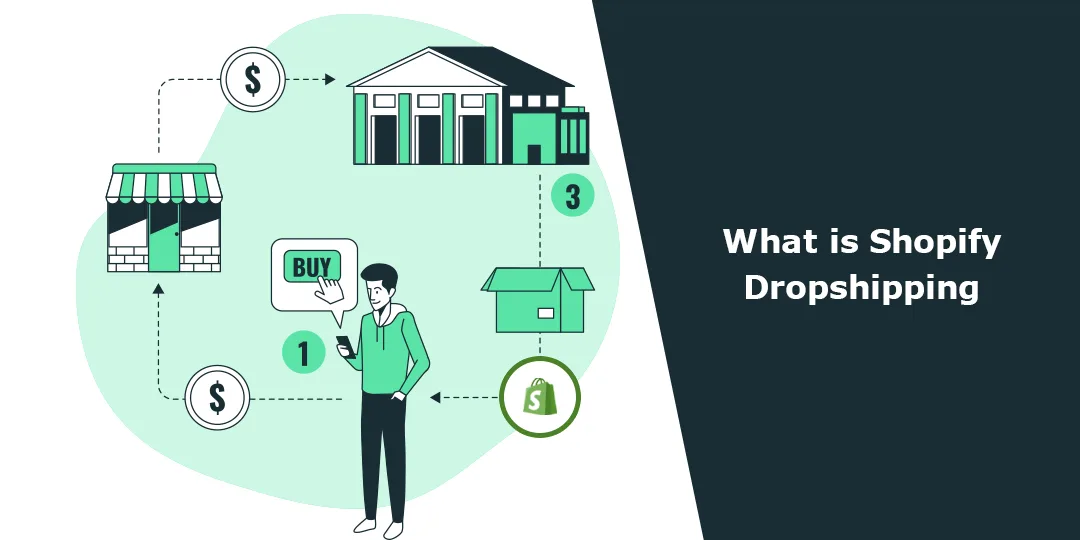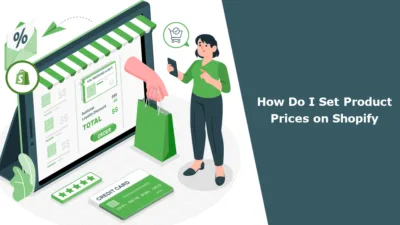In the fast-paced world of e-commerce, entrepreneurs are constantly seeking innovative ways to start and scale their online businesses. One such method that has gained significant popularity is dropshipping, and Shopify has emerged as a preferred platform for this business model. If you’re new to the concept, this blog will provide you with a comprehensive understanding of what Shopify dropshipping is and how it works.
What is Dropshipping?
Dropshipping is a business model where online store owners don’t stock the products they sell. Instead, they partner with suppliers who handle inventory, storage, and shipping. When a store sells a product, it purchases the item from the supplier, who then ships it directly to the customer. In essence, the retailer acts as an intermediary, connecting customers with suppliers.
What is Shopify Dropshipping?
Shopify dropshipping is a specific e-commerce business model that combines the Shopify platform with the dropshipping method. It allows entrepreneurs to create and operate Shopify online stores without the need to hold or manage physical inventory. Instead, when a Shopify store owner sells a product, they purchase the item from a third-party supplier, who then ships it directly to the customer.
How Does Dropshipping Work for Shopify?
Dropshipping on Shopify is a straightforward process, and it works in the following way:
Setting Up a Shopify Store:
To get started, you need to create a Shopify store. This involves selecting a Shopify plan, choosing a domain name, customizing the store’s design, and configuring essential settings.
Choosing a Niche and Products:
Next, you select a niche or product category to focus on. You can research and identify products with potential demand and profit margins. It’s important to select products that are suitable for dropshipping, meaning they are available from reliable suppliers.
Integrating a Dropshipping App:
Shopify offers several dropshipping apps in its app store. These apps help automate many aspects of the dropshipping process. Choose one of these apps and integrate it into your Shopify store.
Sourcing Products:
Use the dropshipping app to import product listings from your chosen suppliers. These listings typically include product images, descriptions, and prices. You can often choose which products you want to offer in your store and customize the listings.
Customizing Product Listings:
Once the products are imported, you can customize the product listings to make them more appealing to your target audience. This may involve modifying product descriptions, titles, and prices to optimize your store for conversions.
Managing Inventory and Pricing:
The dropshipping app will usually keep your product inventory and pricing synchronized with your suppliers. This means that your store will automatically reflect the latest stock levels and prices from your suppliers. You can learn How to Create Inventory Transfer in Shopify and How to Import Export Inventory in Shopify.
Receiving Orders:
When a customer places an order on your Shopify store, you’ll receive the order information in your admin panel. This includes the customer’s details, the ordered products, and the shipping address. Learn – How to Check Orders in Shopify.
Automated Order Processing:
The dropshipping app automates the process of sending the order details to your supplier. The supplier is responsible for packaging and shipping the product directly to the customer.
Order Tracking:
You can track the status of orders within your Shopify admin panel. In many cases, the dropshipping app also provides order tracking information for your customers to check the progress of their deliveries.
Customer Support:
Be prepared to handle customer inquiries, such as questions about orders, product details, and any issues that arise. Providing excellent customer service is crucial for building trust and ensuring customer satisfaction.
Marketing and Scaling:
Implement various marketing strategies to promote your store and products. Use social media, email marketing, search engine optimization (SEO), and advertising to attract and retain customers. As your business grows, consider expanding your product range and scaling your marketing efforts.
Why is Shopify Ideal for Dropshipping?
Shopify’s features and functionalities make it an excellent choice for entrepreneurs interested in starting a dropshipping business. Here’s how the two come together:
- Easy Setup: You can create a Shopify store with minimal technical expertise. The platform offers a range of user-friendly templates to help you design an attractive online storefront.
- Product Management: Shopify allows you to seamlessly integrate with dropshipping suppliers and manage your products. You can easily add and edit product listings, pricing, and inventory levels.
- Order Management: When a customer places an order on your Shopify store, the order information is automatically sent to your dropshipping supplier. This eliminates the need for you to handle inventory or ship products.
- Scalability: As your business grows, Shopify’s scalability ensures you can handle an increasing number of orders without having to worry about logistical challenges.
- Automation: You can set up your store to automate certain tasks, like sending order information to suppliers or tracking inventory levels. This frees up your time for other aspects of your business.
- Diverse Product Range: With dropshipping, you have the flexibility to offer a wide variety of products in your store without the need to pre-purchase them. You can quickly adapt to market trends and customer preferences.
- Low Initial Investment: Compared to traditional retail models, dropshipping typically requires less upfront investment in inventory, making it an accessible option for many budding entrepreneurs.
Final Thoughts:
In conclusion, Shopify dropshipping is a business model that leverages the power of e-commerce and the flexibility of the Shopify platform to create a low-risk, low-investment, and potentially high-reward online business. Success in dropshipping requires effective marketing, sound product selection, and a commitment to providing a positive customer experience. If you’re considering starting your own e-commerce venture, Shopify dropshipping is a path worth exploring.
Now that you are aware of Shopify dropshipping, learn – How to Start Dropshipping With Shopify. Alternatively, Hire Shopify Developer to help you set up your Shopify dropshipping business.









“I just read your article on why Shopify is ideal for dropshipping, and it was fantastic! 🛒 Your points about its user-friendly interface and seamless integration with various dropshipping apps really stood out to me. It’s impressive how easy it is to set up a store and start selling without needing technical expertise.
I also loved your insights on Shopify’s customizable themes and responsive design, which make it simple to create an attractive online store. Plus, the built-in payment options and robust customer support are huge advantages for dropshippers looking to scale their business.
This blog is a great resource for anyone considering starting a dropshipping venture. Thanks for sharing such valuable information! I can’t wait to dive into my own Shopify store!”